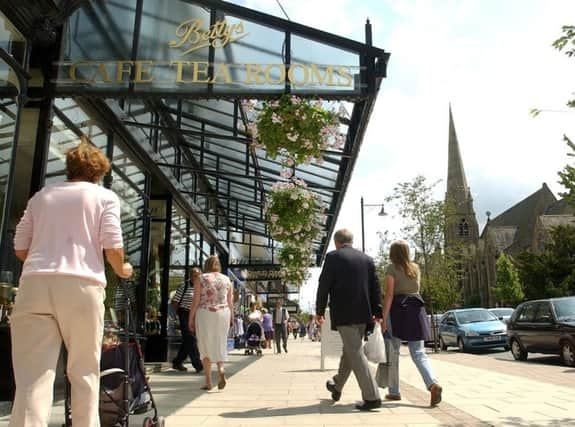Divorce from Bradford: The election agenda in Ilkley and Keighley


Ten miles away, on the other side of Rombald’s Moor, the picture could not be more different. Keighley is a mill town that has seen better days; a gritty, grimy outpost of Bradford dogged by racial tension and a financial scandal within its town council.
Yet these antipodal points on the region’s compass are part of the same constituency.
Advertisement
Hide AdAdvertisement
Hide Ad“You’ve got the whole of Yorkshire in one patch,” says John Grogan, who will, on June 8, attempt once more to wrest Keighley (including Ilkley) from the Conservatives. He last tried two years ago, and considers the 3,053 majority of the sitting MP, Kris Hopkins, slender enough to be overturned.
That was before Labour’s local election rout on Thursday, yet in this see-saw constituency, almost any outcome is possible. Labour’s Ann Cryer held the seat from 1997 to 2010 and won praise on both sides of the House for her dispassionate exposé of Keighley’s racial divide. Her late husband, Bob Cryer, had held the same seat for a decade, from 1974 - latterly with a majority of just 78 votes.
Keighley was named last year among the 10 least integrated places in the country. At around the same time, 12 of its men were locked up for 130 years for the rape and sexual abuse of a white schoolgirl who had been passed around Asian men.
A year earlier, the town council was found to have acted beyond its powers after a member of its own staff had warned it that its failure to comply with financial regulations was so serious that it was “bordering on the line of corruption”.
Advertisement
Hide AdAdvertisement
Hide AdAll of this rankles with some in Ilkley, where properties are among the most expensive in Yorkshire, and where preserving the green belt is higher up the political agenda. Many there would like to declare UDI from the Bradford District, in which it and Keighley sit. It is on this platform that David Crabtree is standing as an independent.
“People feel disenfranchised,” he says. “The council raises the bulk of its money in Ilkley but more of it gets spent on inner-city Bradford.”
Kris Hopkins does not entirely disagree. A Keighley-born ex-soldier who led Bradford Council a decade ago, he also wants to see the constituency divorced, favouring a new council that would encompass Ilkley and Keighley, plus the nearby towns of Shipley, Baildon and Bingley. He and the neighbouring Conservative MP, Philip Davies, plan to petition for a local referendum on the issue.
It was the desire by locals to take back control from Bradford that had fuelled the creation of the flawed Keighley town council, he says. Yet for all their differences, it and Ilkley would sit together more comfortably, he believes - though he notes that life expectancy in the latter is eight or nine years longer.
Advertisement
Hide AdAdvertisement
Hide AdHe also believes a split would play to Bradford’s advantage, since the relative wealth of Ilkley and even Shipley masks the extent of the city’s poverty and excludes it from funding it would otherwise receive, he says.
Mr Grogan, who was MP for Selby from 1997 to 2010, says he does not support the separation agenda - a lot of people from Keighley never go to Ilkley, and vice versa, he says - yet there is common ground between him and Mr Hokpins, not least on what both consider to be Bradford’s overly casual attitude to protecting the green belt of lower Wharfedale.
“There is a need to build houses, but Bradford is always going to take the easy option of digging up fields, not sorting out all the derelict brownfield sites,” Mr Hopkins says.
In March, the council was warned by ministers that it does not have carte blanche to redraw the green belt in its housing plan.
Mr Grogan notes: “John Prescott, whatever you think of him, his great achievement was to move brownfield development up the agenda.”
A Lib Dem candidate is awaited.